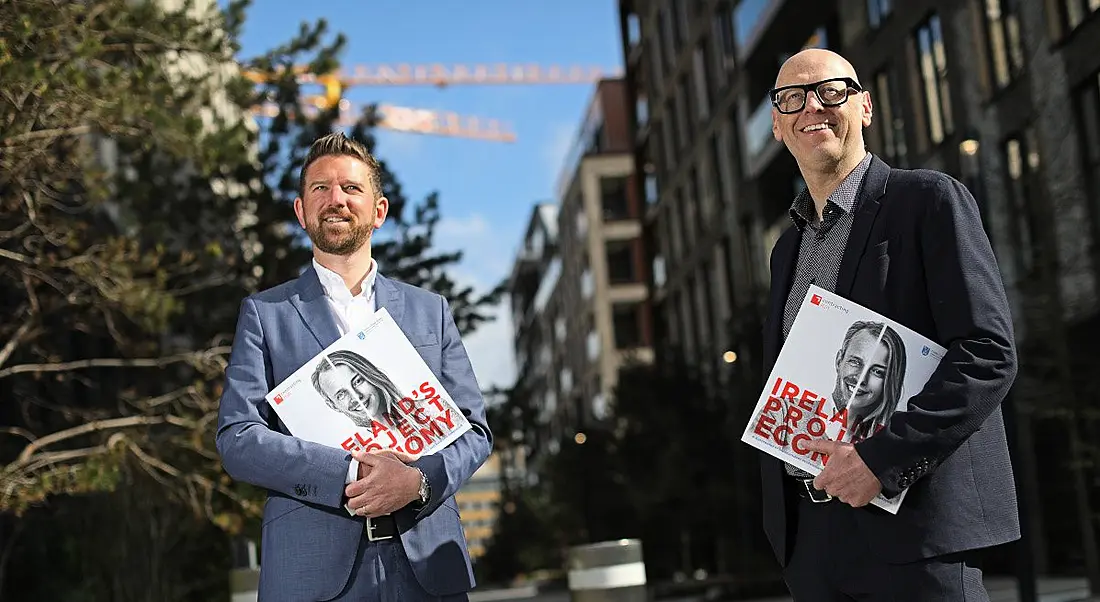The first ever report on Ireland’s project economy suggests contractors have better job satisfaction and higher salaries than long-term employees.
High-skilled contractors in the project economy are better paid, less discriminated against and happier than their counterparts in long-term employment, according to a new report.
Trinity Business School surveyed almost 1,500 contractors, contract recruiters and companies employing contractors to learn more about working life in the project economy. The research was led by Prof Andrew Burke, the school’s dean and chair of business studies, who spoke about the topic at Future Human 2020.
The study, carried out in collaboration with Contracting Plus, is the first ever research report on Ireland’s project economy and will be repeated annually going forward. It suggests that the project economy is five times bigger than the gig economy.
Burke explained at Future Human that the project economy is more output-based than the input-based gig economy, which means that companies hire professionals with specialised skills for a set amount of time or a particular project that has an end date.
Payment in the project economy
The report says that professional contractors in Ireland charge an average rate of €501 per day, and earned an average income of €109,066 in 2020. This is 58pc higher than the salaries of equivalent employees in the same type of job.
Those who do project-based work – which is around three-quarters of contractors – earn more than that again, charging €535 per day and earning €116,802 each year. This is 70pc more than equivalent employees.
According to the report, the highest daily rates are charged by those working in finance and other professional services, climbing as high as €733. Marketing services and administrative support services were on the lower end of the scale, starting at €366 per day.
Impact on Ireland’s economy
Burke said the report demonstrates the importance of the project economy to Ireland’s wider economy.
“Project-based professional contractors are key in driving growth and innovation in corporations and SMEs alike,” he said. “We find that they get well rewarded for the high value they create for business, earning approximately 70pc more than equivalent employees, and with greater personal fulfilment for the work they do.
“The high-skilled project economy provides a combination of great value to the economy and the life satisfaction of professional contractors.”
Jimmy Sheehan, managing director of Contracting Plus, added that many business and industrial sectors rely on the project economy and highly skilled independent contractors.
“[Contractors] make a massive contribution in businesses where agility and ability to manage uncertainty and risk supports competitive advantage,” he said.
Burke and Sheehan also said that the project economy contributes to job creation. Nearly two-thirds (64pc) of recruiters surveyed said they have more than 100 contractors on their books, with the vast majority working in the private sector in knowledge-based industries such as pharma, finance, ICT, engineering, life sciences and medical devices.
Contractor contentment
The study found that professional contractors have greater job satisfaction rates than long-term employees, averaging at 80pc.
Work itself scored the highest satisfaction rating at 84pc, followed by job location at 83pc and flexibility at 82pc. The quality of remote working options scored 81pc, rate of pay scored 79pc and work-life balance scored 75pc.
And in terms of achievement, 88pc said they were happy with the amount of success they had experienced in their career.
Contractors aged 60 and above had some of the highest job satisfaction scores, according to the report, and the lowest burnout (8pc) and loneliness (21pc) scores.
Diversity and inclusion
The project economy can be more diverse and inclusive than other types of employment, the report suggests. Older contractors tend to remain active in the workforce for longer than employees, for example.
The gender pay gap in the project economy is less than 8pc, according to the study. However, the report also shows that around 75pc of people working in the project economy are men.
Looking to the future, Sheehan said: “Better regulation and parity in taxation that puts professional contractors on a par with other self-employed business owners is needed, so that we do not inadvertently create hurdles and hamper the significant entrepreneurial contribution of this high-skilled professional cohort.”




